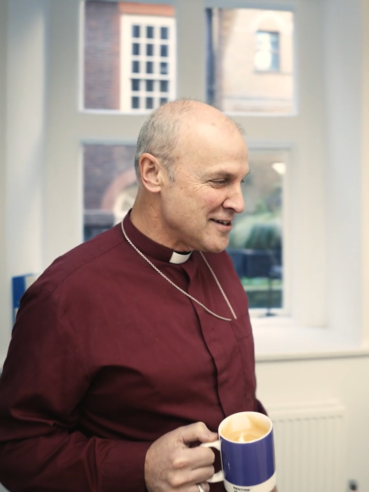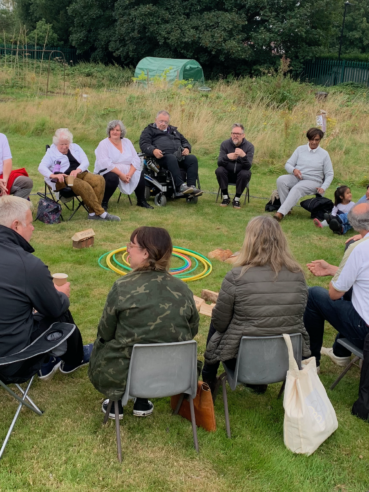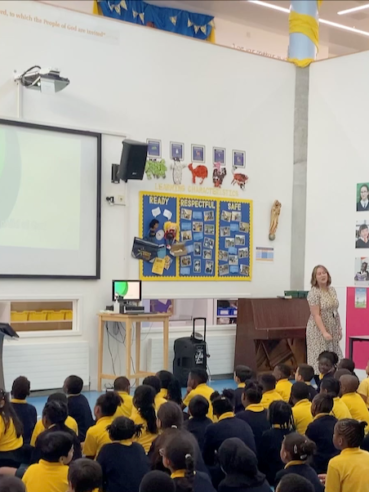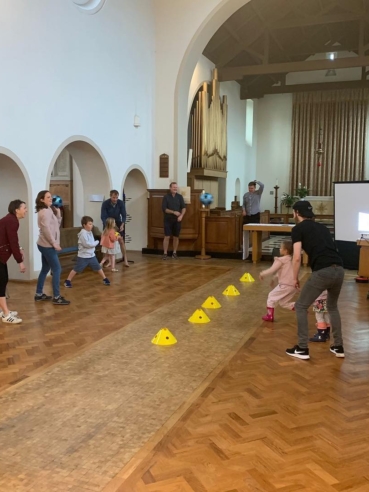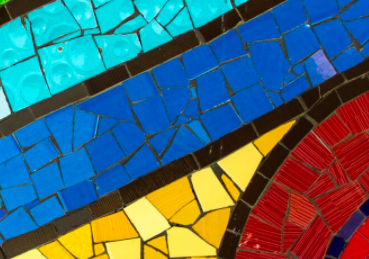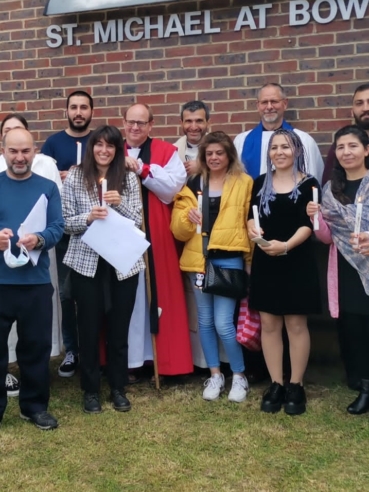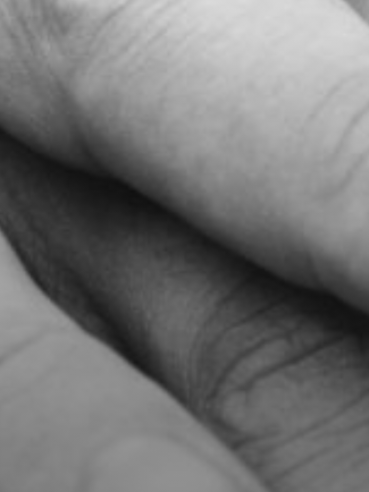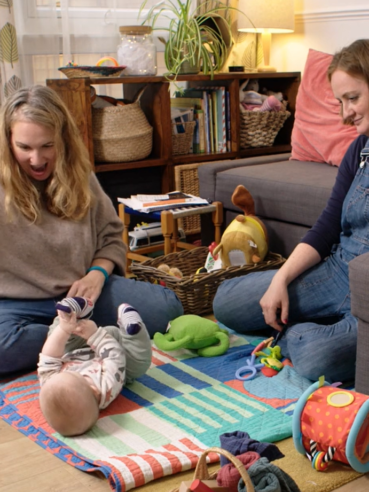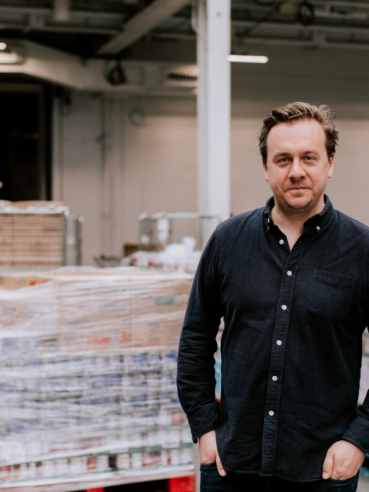When renting a space in ARK, members gain access to the usual coworking necessities of caffeine, wi-fi and desk space, alongside a truly Kingdom-shaped community with collaboration at its core, seeking to impact the local area of King’s Cross for good.
‘ARK is a social enterprise that understands that community is an important foundation for enabling creativity and innovation,’ explains Nick Johnson, one of ARK’s co-founders, ‘as well as bringing isolated people together.’

Nick is speaking to CCX after presenting to a group of international church leaders as part of a day of innovation talks, illustrating how the Church can do new things to reach new people. When unpacking the vision of ARK, Nick draws on Biblical and ecclesial strands, a blend of parable pictures and monastery functions.
‘Take a classical monastery, a building surrounded by fields – the Church was the landowner, lending fields to others,’ says Nick. ‘People would work in these fields, ploughing and sowing seeds, the monastery engaging in the lives of those who worked in those fields. It was a sacred space, a point where the Church engaged with people’s working lives.
‘ARK looks to ask, what would it be like to recreate those spaces of innovation again around the Church? Not simply Kingdom businesses – which I totally advocate – but to link the Church back to that process of sowing seeds into good soil around the Church space again, to become a field maker for churches, to be the good soil for others to plant into.
‘We want to see the Church have a more active role in serving people’s working lives, to encourage innovation around churches with an outward embrace, but also with an inward face, of what it’s like for business to serve the Church and innovate within the Church setting.’
The origins of ARK sit within the wider story of King’s Cross Church, KXC. Planted out of St Mary’s Bryanston Square in February 2010 by Pete and Bee Hughes and a small group of leaders, KXC began life without a building but with a Bishops Mission Order, commissioned by the Bishop of London with a vision to recklessly give themselves away to God, each other and the people of King’s Cross.
This saw KXC become a church that naturally pioneered, innovating outside some of the traditional structures of church. TENT, the predecessor to ARK, was an example of this, emerging in 2012 when KXC sought a use for a 15,000 square foot space it had been lent within King’s Cross on a meanwhile use.
‘A couple within the church asked “What’s it like for us to use this space to serve our business community?”,’ says Nick. ‘They worked in creative industries and had a lot of freelancers working around them. They stripped back this office space and put up trestle tables. Their freelance community formed around them. Though the space was free of charge, people had to buy into the community to make it work; at around 3.30 pm an alarm clock would go off, with a list of tasks written on a wall. People would have to grab a task, and go clean the dishes or do the bins, wipe down the surfaces, that sort of thing.’
It was in TENT that Nick’s journey also started. Having trained as an accountant, Nick had worked in finance for seven years when he felt God calling him to serve small business.
‘I set up a counterside practice in TENT, working with freelancers and small startups. When our time in that space came to an end, we put together a business plan that looked to capture how we might take the essence of TENT, grounded in community and the church serving the business community, wrapped in a more sustainable model.’
When a new building opportunity came up in 2016 in an old Victorian apartment block, ARK was able to launch. Nick was joined by Gav Turnbull, the co-founders putting together a business proposition that was accepted by KXC, its business shares given to the church. They moved again in 2022 into their current home in an old church hall on Carnegie Street, partnering with All Saints Church.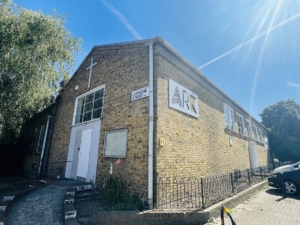
The language surrounding ARK is one of ministry and business, Nick emphasising that it’s neither one or the other. Its very name hints at this, the Ark of the Covenant emerging from the original Tent of meeting, an ARK that is built by the skills and tithes of a community – as well as that place of safety, provision and community within Noah’s Ark.
Kingdom values extend from its name into its organisational practices; the coworking space has gained B Corp Certification – a designation that indicates a business is meeting high standards of accountability and transparency. It runs a number of programmes that look to address social injustices and problem areas at the heart of the King’s Cross area: bursaries are offered to local freelancers and startups who might otherwise not be able to afford a co-working space, while spARK acts as an incubator, giving three-months free desk space and business coaching to those just starting out.
ARK for Good is the community’s way of giving back to the local area, an annual tithing rhythm that sees five percent of all membership fees given to initiatives in the local area, with ARK members able to nominate projects or charities they’d like to support.
Beyond its physical provision of a working space, ARK looks to support KXC’s vision to cultivate a culture of pioneering within the church’s congregation. ‘This year, we did a whole piece around the cost of living crisis,’ says Nick. ‘We listed out nine injustices that were coming out of the cost of living crisis and asked, “How do we as a church collectively but also individually respond to that?”. People from the church would come into groups around these issues where they felt a particular connection with a problem, to pray and invite God into that setting as they explored the problem.’
When establishing ARK, Nick and the team were hesitant about how explicit they should be with their monastery-shaped, Kingdom-minded plans, how to tell others about the way in which they hold business and church in unity.
‘We initially shied away from sharing our link to the church,’ recalled Nick. ‘We feared people might be put off by it – we wanted to avoid being labelled as a Christian co-working space.’
Now, however, Nick believes around 80% of those working in ARK – which holds space for some 60 freelancers – aren’t Christians.
‘Our story and relationship with church hasn’t been a barrier for people to come in at. I think they’ve really appreciated the authenticity of us sharing our faith when we tell our story.’
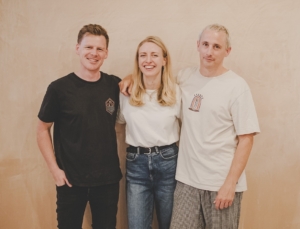 The three part-time staff members who look after ARK – Nick, Gavin and Philippa – operate in what they describe as a chaplain, rabbi-style role, walking the ‘marketplace’ to be alongside those working there. Faith isn’t necessarily shared at the desk-side, but the ARK team looks to form connections and nurture spaces to share faith ‘at the watercooler’, or while the intentionally slow pour-over V60 coffee maker does its work.
The three part-time staff members who look after ARK – Nick, Gavin and Philippa – operate in what they describe as a chaplain, rabbi-style role, walking the ‘marketplace’ to be alongside those working there. Faith isn’t necessarily shared at the desk-side, but the ARK team looks to form connections and nurture spaces to share faith ‘at the watercooler’, or while the intentionally slow pour-over V60 coffee maker does its work.
Prayer and ministry is offered, when appropriate, with Nick recalling an occasion that came up shortly after Brexit took place.
‘We had someone running a business that imported French wines from small vineyards into the UK market – the business model completely collapsed overnight. When he came in we could see he was just a different person. It was an opportunity to ask him, ‘Hey, how are you doing?’ over coffee, to pray and invite him to church – an opportunity to speak into the uncertainty and anxiety of the business scenario.
The ARK model has gained interest from other churches, keen to explore similar models of ministry that could work for them. Conversations are ongoing as to how ARK can be commissionally authorised, to find a common language and legal understanding which would help it become recognised and replicated by the institutional Church.
‘In King’s Cross, the ARK model of establishing a co-working space makes sense, delivering a space where church and business can inform one another and ministry can take place. But in a rural setting, co-working may not be the strongest option compared to options like using church spaces as an events space, coffee, soft play areas or even climbing walls,’ reflects Nick.
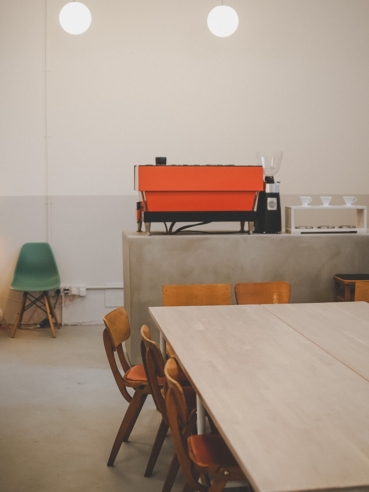
The model of ARK has never been to purely generate revenue for a local church. While that plays a part, it’s not the main call.
‘There’s nothing wrong with income generation as a model,’ says Nick, ‘but I think that’s almost too narrow to describe what we’re doing, it misses out on the heart of what it’s like to recognise we’ve been given an instrument that needs to be used to do mission – we’re integrating our mission with our income, integrating business with church.’
Exciting things are happening at ARK, demonstrating a model with KXC that could have a profound impact if taken up by other churches – in London and beyond. Questions remain and the journey is still being navigated; Nick himself is discerning a call to ordination, and whether the next steps for the ARK model lie in him being a priest, or as a deacon.
To find out more about ARK or get in touch with Nick, Gavin and Philippa, you can visit the ARK website – or pop in and visit them on Carnegie Street in King’s Cross.



 The three part-time staff members who look after ARK – Nick, Gavin and Philippa – operate in what they describe as a chaplain, rabbi-style role, walking the ‘marketplace’ to be alongside those working there. Faith isn’t necessarily shared at the desk-side, but the ARK team looks to form connections and nurture spaces to share faith ‘at the watercooler’, or while the intentionally slow pour-over V60 coffee maker does its work.
The three part-time staff members who look after ARK – Nick, Gavin and Philippa – operate in what they describe as a chaplain, rabbi-style role, walking the ‘marketplace’ to be alongside those working there. Faith isn’t necessarily shared at the desk-side, but the ARK team looks to form connections and nurture spaces to share faith ‘at the watercooler’, or while the intentionally slow pour-over V60 coffee maker does its work.
